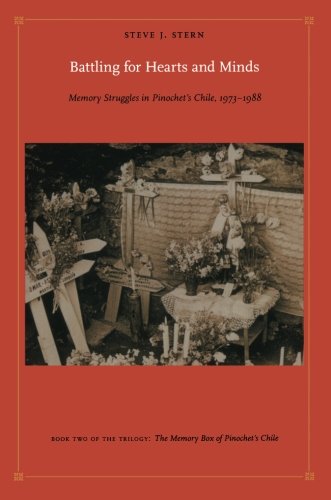
|
|
Product Description
Stern’s analysis integrates policymaking by elites, grassroots efforts by human rights victims and activists, and inside accounts of the truth commissions and courts where top-down and bottom-up initiatives met. Interpreting solemn presidential speeches, raucous street protests, interviews, journalism, humor, cinema, and other sources, he describes the slow, imperfect, but surprisingly forceful advance of efforts to revive democratic values through public memory struggles, despite the power still wielded by the military and a conservative social base including the investor class. Over time, resourceful civil-society activists and select state actors won hard-fought, if limited, gains. As a result, Chileans were able to face the unwelcome past more honestly, launch the world’s first truth commission to examine torture, ensnare high-level perpetrators in the web of criminal justice, and build a public culture of human rights. Stern provides an important conceptualization of collective memory in the wake of national trauma in this magisterial work of history.
Customers Who Bought This Item Also Bought
- Chile in Transition: The Poetics and Politics of Memory
- Salt in the Sand: Memory, Violence, and the Nation-State in Chile, 1890 to the Present (Politics, History, and Culture)
- Remembering Pinochet's Chile: On the Eve of London 1998 (Latin America Otherwise) (Bk. 1)
- The Pinochet File: A Declassified Dossier on Atrocity and Accountability
- Forgotten Peace: Reform, Violence, and the Making of Contemporary Colombia (Volume 3) (Violence in Latin American History)
- Battling for Hearts and Minds: Memory Struggles in Pinochet's Chile, 1973-1988 (Latin America Otherwise)
*If this is not the "Reckoning with Pinochet: The Memory Question in Democratic Chile, 1989-2006 (Latin America Otherwise" product you were looking for, you can check the other results by clicking this link







